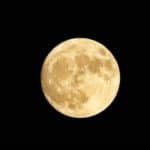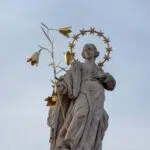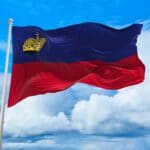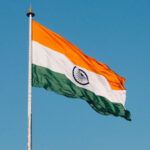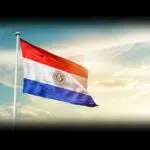You may have seen the movie, “Gandhi,” but you may not know the real story. Indian Independence Day, on August 15, reminds us of the long, hard-fought battle for liberation against British domination championed by leaders like Mahatma Gandhi and Jawaharlal Nehru. Despite the expansive British Empire on which it was said, “the sun never sets,” ragtag groups of liberation fighters and brilliant strategists soundly defeated the British with strong, tactical mobilizing and the persistence that comes from centuries of oppression. Join in the celebration of what Nehru called India’s “Tryst with Destiny.”On 15th August 1947, the Prime Minister of India, Jawaharlal Nehru lifted the Indian flag above the Lahori Gate in Delhi. In some ways this became a custom and on each subsequent Indian Independence Day, the sitting Prime Minister raised the countries flag and gives an address to the nation.Indian Independence Day 2021 will be observed throughout India with parades, flag hoisting events and cultural setups.
When is Indian Independence Day 2024?
As the Urdu patriotic song goes, “Better than the entire world, is our Hindustan (India). We are its nightingales, and it (is) our garden abode.” India celebrates its Independence Day on August 15.
History of Indian Independence Day
The British Empire’s rule started in India in 1757, followed by the English East India Company gaining control over the entire country by winning the Battle of Plassey. The Indian independence movement began during World War I and it was led by renowned leader Mahatma Gandhi. Gandhi staunchly advocated a noncooperation, nonviolent method of protest, after which the civil disobedience movement took place.After relentlessly long campaigns for independence, India’s struggle paid off. Britain had weakened after the two world wars and began thinking of ending its rule in India. In 1947, the British government declared the transfer of all powers to India by June 1948, but continuing tensions and violence between Muslims and Hindus led to a consensus for the partition of India into two separate states. To deal with this, the British government proposed on June 3, 1947, that any constitution framed by the Constituent Assembly of India will not be applicable to parts of the country that refuse to accept it. On the same day, a plan for partition was put into action by Lord Mountbatten — the then viceroy of India. Mountbatten’s plan was agreed to by both the Congress and the Muslim League. As new borders were drawn and the world map changed forever, between 300,000 and 500,000 people died on both sides. On August 15, 1947, at midnight, India gained independence and was concluded by the iconic speech by Jawaharlal Nehru, “Tryst with destiny.” The great British rule over India came to an end with the powers transferred to the newly independent entities Pakistan and India. Lord Mountbatten became the first governor-general of the new Dominion of India and Jawaharlal Nehru became the first prime minister of Independent India. The Constituent Assembly that was set up in 1946 became the Parliament of Indian Dominion.
Indian Independence Day timeline
Mangal Pandey rises up against the British East India Company’s army, triggering an effective rebellion against British oppression.
The Indian National Congress is formed out of a coalition of various groups including the National Students Union of India, the Indian Youth Congress, and the Indian National Trade Union Congress.
The Jallianwala Bagh Massacre involves British troops firing into a massive crowd of unarmed Indian civilians in Amritsar — an event that motivates Gandhi to lead a movement of nonviolent resistance in the struggle for independence.
The Indian National Congress gathers at Lahore and resolves to fight for ‘Purna Swaraj’ or total liberation.
By midnight of India's first day as an independent, sovereign nation, Pandit Jawaharlal Nehru reinforces India's liberation with his iconic “Tryst with Destiny” speech.
Indian Independence Day FAQs
Is it the 75th Independence Day in India?
India is celebrating its 75th Independence Day in 2021.
Why did India get independence on August 15, 1947?
The last viceroy of India, Lord Mountbatten was the reason behind choosing August 15 as India’s Independence Day.
Which is the royal city of India?
The city of Jaipur is considered to be the royal city of India.
How to Observe Indian Independence Day
-
Make it a family affair
Gather family and friends together for an outing at the park, a special dinner or strolling in a garden. The main thing is to get with the people you hold dear and spend quality time celebrating this special day of India's liberation.
-
Go fly a kite
Bet you didn't know that kite flying has a revered place in India because it is a symbol for Indian Independence Day. If you can't be in India for the festivities; head to your nearest park or beach, unfurl your brightest-colored kite and fly in honor of India's day of freedom.
-
Shout “Vande Mataram!”
Every liberation movement has its rallying cry. “Vande Mataram” became a slogan to inspire India's freedom fighters as they battled the British. On Indian Independence Day, get family and friends together before, during or after festivities and shout out "Vande Mataram!
4 Things To Know About India's "Tryst With Destiny" Celebration
-
The day starts with a 21-gun salute
On Indian Independence Day, the prime minister hoists the Indian flag from Red Fort, Delhi, while someone sings the National Anthem and soldiers fire off a 21-gun salute to commemorate the event.
-
The date changed
The actual date of India's independence is July 18, 1947, but Britain's Lord Mountbatten changed the date to coincide with the second anniversary of Japan's surrender to the Allied Forces on August 15.
-
Flag symbolizes progress
India's original flag was made up of the two symbolic colors of red and green, but Gandhi suggested adding a white strip in the middle with a spinning wheel to represent India's national progress.
-
There's a mandatory no-fly zone
Safety measures call for a ban on air traffic over Delhi's historic Red Fort.
Why Indian Independence Day is Important
-
It's the most important day in India's long history
Indian Independence Day is the nation's most beloved holiday because the Indian people liberated themselves from the British without having massive armies or a national treasury. It's also incredible when you consider the length of British rule in India. During the 1700s, India's colorful fabrics and aromatic spices lured British traders to the Indian subcontinent. After 100 years, the British East India Company had a firm grip on all aspects of India's economy in a monopoly sanctioned by — and benefiting — the British government.
-
Gandhi and the Indian National Congress led the liberation movements
An eye for an eye only ends up making the whole world blind," was a saying by one of India's most famous leaders, Mahatma Gandhi. Trained as a lawyer, he was among the first to call for Indians to have self-determination for their country. Through his spiritual practice of "ahimsa," meaning "doing no harm," Gandhi raised non-violent resistance to a form of political action. Gandhi, Nehru, and other Indian leaders formed the Indian National Congress to strategize against British rule and to mobilize the masses in the struggle.
-
Liberation created one of the world's great nations
After years of struggle and deprivation, the Indian people threw off the shackles of British domination. After WWII, thanks to the determination of Indian freedom fighters, on August 15, 1947, the British Parliament transferred legislative sovereignty to the Constituent Assembly of India with the Indian Independence Act.
Indian Independence Day dates
| Year | Date | Day |
|---|---|---|
| 2023 | August 15 | Tuesday |
| 2024 | August 15 | Thursday |
| 2025 | August 15 | Friday |
| 2026 | August 15 | Saturday |
| 2027 | August 15 | Sunday |





